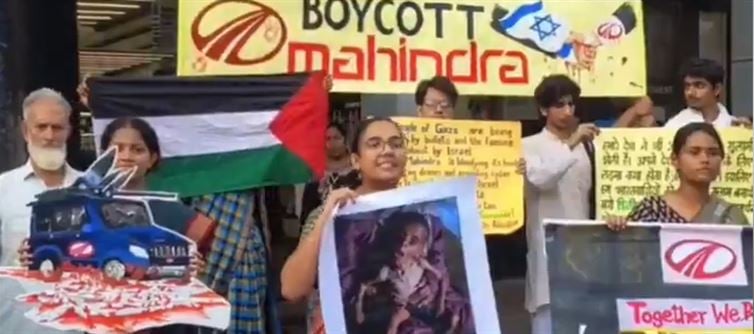
The protestors' grievances are rooted in their belief that mahindra, through its various companies, provides drones, vehicles, and cybersecurity facilities to the Israeli military, thereby enabling the conflict. They demand that the indian government sever all diplomatic ties with israel and call for a broader boycott of mahindra products as part of the BDS (Boycott, Divestment, and Sanctions) movement. The video includes subtitles and images that reinforce its narrative, such as a photograph of a distressed child and text overlays stating, "The genocide committed by Zionist israel since the last 1.5 years is being funded by the mahindra Group along with its companies." This public display of dissent aims to pressure mahindra and the indian government to reconsider their stance on the Israel-Palestine issue.
The reaction to the protest has been mixed, with some supporting the call for accountability and others criticizing the demonstrators as misguided or misinformed. The incident has reignited debates about corporate responsibility, the role of indian businesses in international conflicts, and the effectiveness of boycott movements. As the video continues to circulate, it has prompted discussions on social media platforms about the broader implications of such protests, the historical context of India-Israel relations, and the potential impact on Mahindra's reputation and business operations.




 click and follow Indiaherald WhatsApp channel
click and follow Indiaherald WhatsApp channel